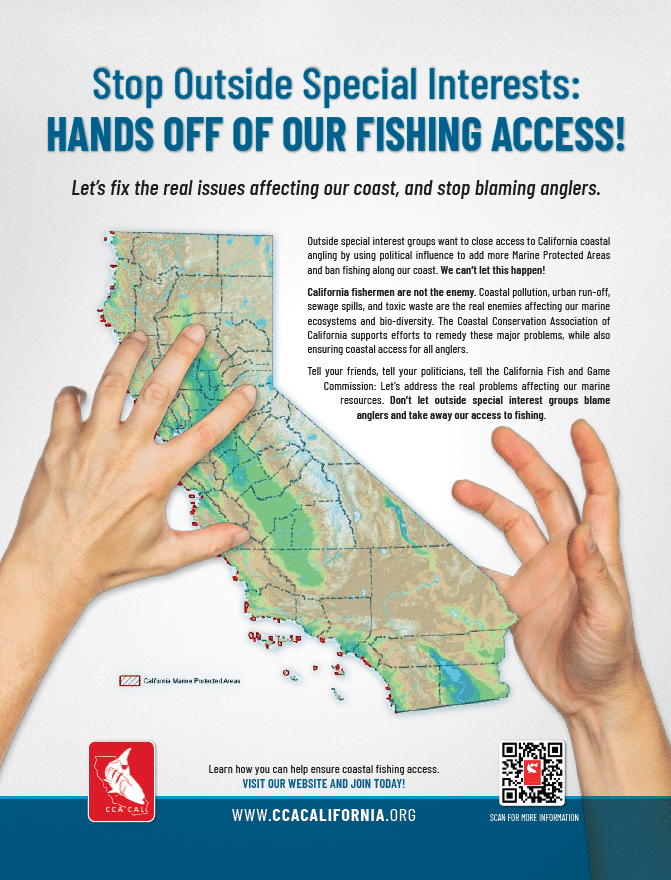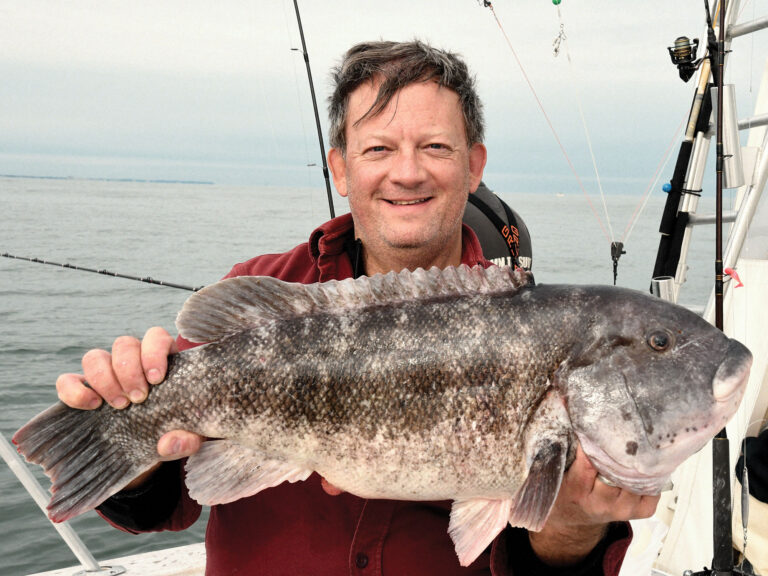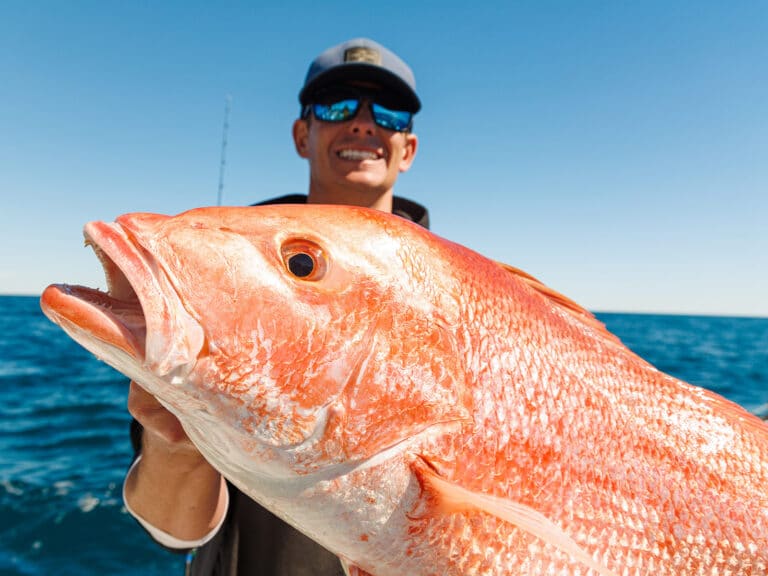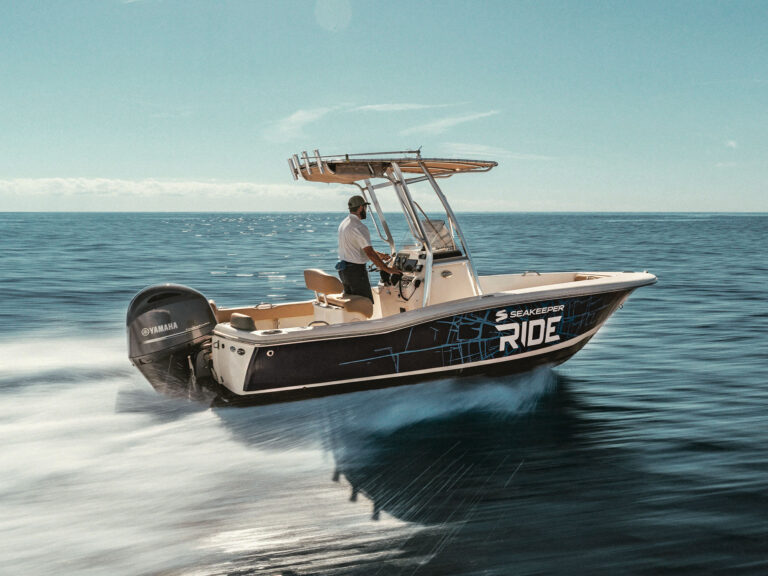
It’s a case of good news, but potential bad news for California coastal anglers.
First the good news: The state has now gone on record to assure anglers of no new or expanded Marine Protected Areas (MPAs) as part of the state’s controversial 30×30 plan.
“There is no separate process to expand existing or create new MPAs to achieve 30×30 goals,” according to Jenn Eckerle, executive director of California’s Ocean Protection Council (OPC), the regulatory agency heading up coastal portion of the state’s 30×30 plan, which seeks to protect 30 percent of waters and land by the year 2030.
“We thank the OPC and Jenn Eckerle for addressing the angling community’s concerns about 30×30,” said Wayne Kotow, executive director of CCA Cal. “This is clear evidence our voices were heard.”
California’s MPA Decadal Management Review Looming
Now for the potential bad news: The California Fish and Game Commission and its Marine Resources Committee (MRC) will be considering California’s MPA Decadal Management Review. This is the legally-mandated 10-year review of the California MPA network. Having struck out with California’s 30×30 process, extreme national environmental groups are already applying pressure on the Commission and the MRC to expand the number of MPAs in this separate process.
“These outside special interest groups are bent on expanding fishing closures as part of the MPA Decadal Management Review,” Kotow says.
The MPA Decadal Management Review will begin in earnest on July 20, 2023, when the MRC meets in Sonoma, California, to review scientific data, hear public comment and start the task of developing recommendations for changes in California MPA network. The existing MPA network was established 12 years ago and includes 124 MPAs and 16 percent of the state’s coastal waters. Once the MRC has developed its recommendations, they will go to the Fish and Commission for hearings, public comment, potential amendments and a vote.
CCA California Fights Against More Fishing Closures
As with the 30×30 process, CCA California is actively engaged in ongoing discussions with members of the Commission and MRC. At the same time, they are forging and strengthening strategic partnerships with like-minded communities and organizations to bolster CCA CAL’s opposition to more fishing closures.
“CCA California believes that strong conservation can coexist with responsible, sustainable consumptive outdoor recreation,” Kotow says. “And we’re not alone, as this point of view is echoed by wide range of groups, including many environmental organizations, the tribal community, and others.”
Kotow points to coastal pollution, urban run-off, sewage spills, and toxic waste are the real enemies affecting California’s marine ecosystem health and bio-diversity. “CCA Cal supports efforts to remedy these major problems instead of trying to blame recreational fishing,” he adds
CCA California has also launched a multi-media campaign to make the public aware of the threats from extreme outside environmental groups. The campaign launched in May 2023.









